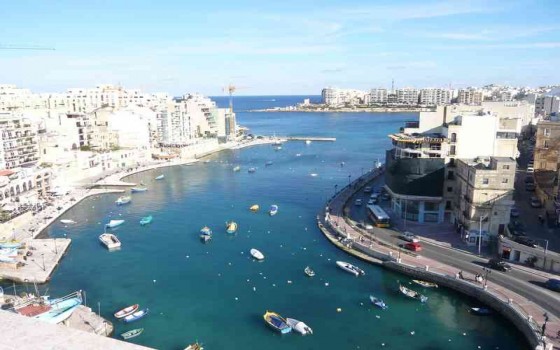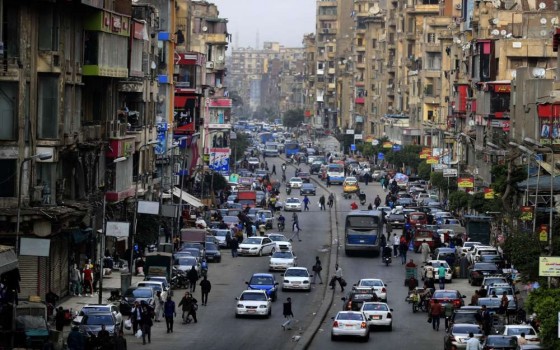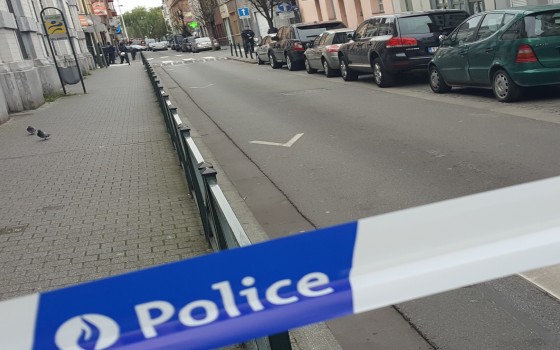
Maritime Safety: New laws to support safe, clean and modern shipping in the EU

- Europe and Arabs
- Monday , 18 November 2024 12:15 PM GMT
Brussels: Europe and the Arabs
To support cleaner, safer and more modern shipping in the European Union, the Council of Member States today adopted four new legislations from the “Maritime Safety” legislative package, which amend the relevant directives on:
- Accident investigation in the maritime transport sector
- Pollution from ships
- Compliance with flag State requirements, and
- Port State control.
According to a statement issued by the EU institutions in Brussels, “The revised ‘package’ strikes a delicate balance between the need to ensure high quality shipping on the one hand, and the need to protect the competitiveness of the European shipping sector on the other, while maintaining reasonable costs for operators and Member State administrations. Overall, it will provide the EU with modern tools to support clean shipping by aligning EU rules with international standards while improving implementation and enforcement through a strengthened cooperation framework between European and national authorities.
Directive on Accident Investigation
The revised Directive on Accident Investigation in the Maritime Sector:
Improves the protection of fishing vessels, their crews and the environment, as fishing vessels of less than 15 metres in length are now within the scope of the Directive, meaning that accidents involving fatalities and loss of vessels will be investigated in a harmonised manner
Clarifies definitions and legal provisions so that accident investigation bodies in Member States investigate all accidents that need to be investigated in a timely and harmonised manner
Strengthens the capacity of accident investigation bodies to conduct and report on accidents in a rapid, expert and independent manner
Several definitions occur References to relevant EU legislation and IMO regulations, to ensure clarity and consistency
Enables accident investigation bodies to conduct accident investigations in a harmonised manner across the EU by making existing rules clearer and more consistent with international regulations
Strengthens provisions on the independence of accident investigation bodies and the confidentiality of their findings and reduces unnecessary administrative burdens.
Ship Pollution Directive
The revised Directive incorporates international standards into EU law, ensuring that those responsible for illegal discharges of polluting substances are subject to dissuasive, effective and proportionate sanctions to improve maritime safety and better protect the marine environment from pollution from ships. The revised law therefore:
Extends the scope of the current Directive to cover illegal discharges of harmful substances in canned form, sewage, garbage, discharged water and residues from exhaust gas cleaning systems
Establishes a strengthened legal framework for administrative sanctions and their effective enforcement, enabling national authorities to ensure that sanctions are dissuasive and consistent for pollution incidents caused by ships in all European seas
Separates the system of administrative sanctions from the system of criminal sanctions provided for in the new draft Environmental Crimes Directive
Ensures clarity and consistency with international rules and procedures, in particular those contained in the International Convention for the Prevention of Pollution from Ships (MARPOL), for the protection of the marine environment.
Directive on compliance with flag State requirements
The Directive regulates the enforcement of the rules applicable in the flag State at EU level. The State of registration and nationality of the ship is responsible for monitoring compliance with IMO conventions: the flag State. The revised Directive therefore:
Updates existing legislation and brings it into line with international rules, in particular with regard to the IMO Instrument Implementation Act (“Act III”)
Ensures adequate inspections of flagged ships and oversight of recognized organizations acting on behalf of the flag State
Ensures increased use of digital solutions
Ensures a coordinated approach to understanding, reporting and measuring the performance of flag State fleets and their duties.
Port State Control Directive
Port State Control (PSC) is a system of inspection of foreign ships in ports of non-flag States by port State control officers, to verify that the competence of the master, officers and crew on board, and the condition of the ship, and its equipment, comply with the requirements of international conventions and, in the EU, with applicable EU law. As such, port State control is important in ensuring maritime safety and protecting the marine environment. The revised Directive:
Updates EU legislation and brings it into line with international rules and procedures set out in the Paris Memorandum of Understanding and IMO Conventions,
Protects fisheries
Enhances the safety of ships, their crews and the environment, including through the introduction of a voluntary inspection regime for larger fishing vessels (over 24 metres in length), and ensures an efficient and harmonised approach to PSC inspections.
Next steps
After being signed by the Presidents of the Council and the European Parliament, all four pieces of legislation will be published in the Official Journal of the European Union in the coming weeks and will enter into force twenty days after this publication. Member States will have 30 months after the entry into force of the revised Directives to transpose their provisions into their national legislation.
The four legislative proposals form part of a maritime safety “package” alongside the European Maritime Safety Agency (EMSA) package. They were presented by the Commission on 1 June 2023 with the aim of updating EU rules on maritime safety and reducing water pollution from ships. With 75% of the EU's external trade taking place by sea, maritime transport is not only the lifeblood of the global economy, but also the lifeblood of the world.
With 75% of EU external trade carried out by sea, shipping is not only the lifeblood of the global economy, but also the lifeblood of the EU’s islands and peripheral and remote maritime areas. Although maritime safety in EU waters is currently very high, with few fatalities and no major oil spills recently, more than 2,000 maritime accidents and incidents are still reported each year. Provisional agreements on the four legislative proposals were reached between participating lawmakers in February this year.












No Comments Found